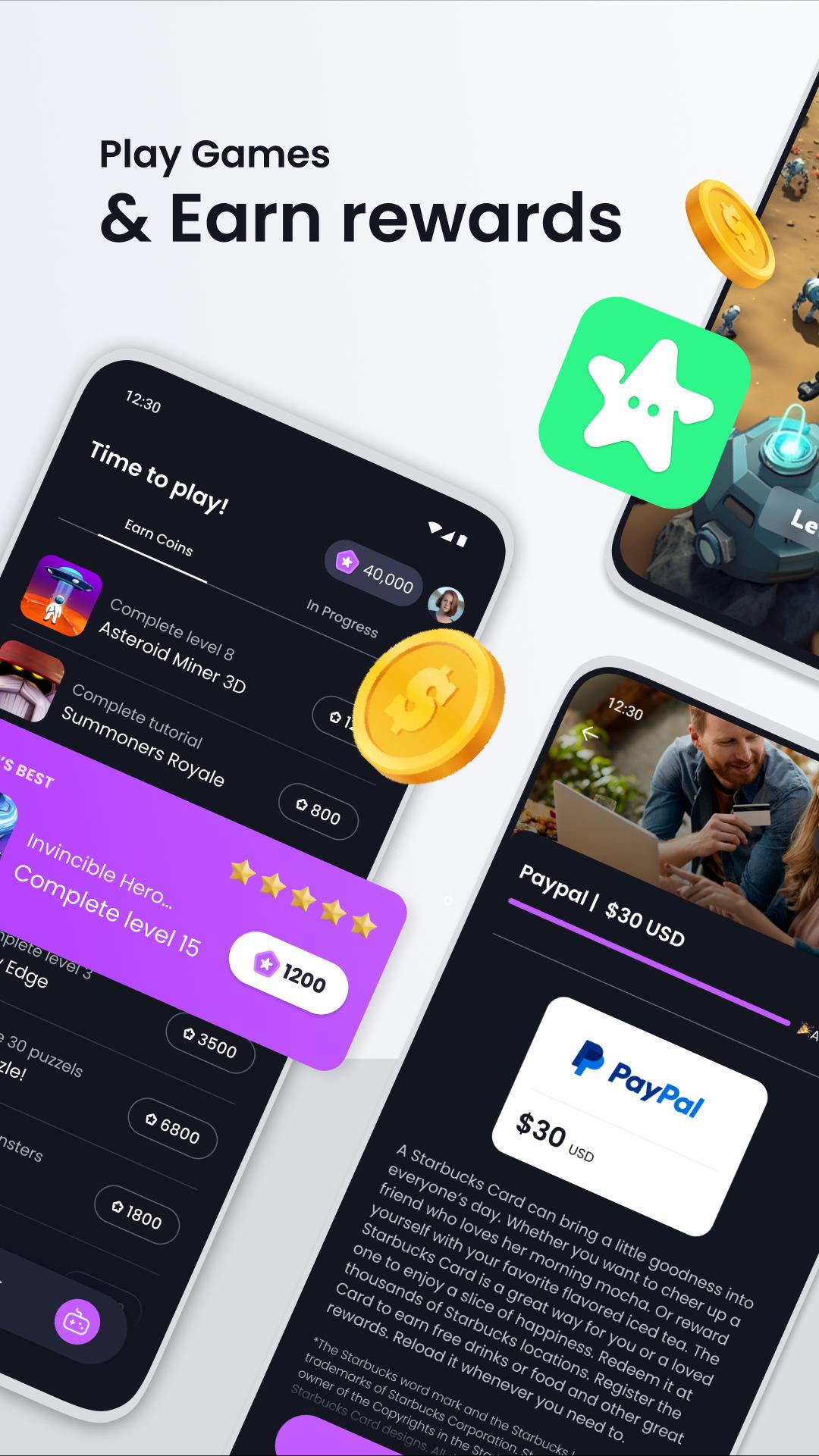How to play to earn rewards: step-by-step guide for new gamers
How to play to earn rewards: step-by-step guide for new gamers
Blog Article
Why Play-to-Earn Benefits Are Altering the Method You Play and Earn
The appearance of play-to-earn versions represents a notable change in the video gaming landscape, welcoming players to explore not just the home entertainment value of games yet likewise their potential as income-generating platforms. This standard offers varied advantages, consisting of possession possession via blockchain technology, which basically changes gamer engagement and financial investment. As this design develops, it presents a distinct collection of difficulties that could affect its sustainability and appeal. Comprehending these dynamics raises significant inquiries concerning the future of video gaming and the effects for both players and designers alike.
Appearance of Play-to-Earn Versions
In recent times, the gaming industry has actually observed a considerable change with the introduction of play-to-earn designs, essentially changing exactly how players engage with digital environments. This innovative approach allows gamers to obtain substantial incentives with their in-game activities, creating a shift from traditional pc gaming standards where pleasure and competition were the primary inspirations.
Play-to-earn models leverage blockchain modern technology and non-fungible symbols (NFTs) to supply players with ownership of in-game properties, which can be traded or cost real-world currency. As a result, gamers are incentivized to spend effort and time into video games, promoting a sense of firm and monetary chance. play to earn rewards. This change has actually attracted a varied gamer base, including those that may have previously watched video gaming as a purely entertainment activity
Several platforms have actually arised, showcasing successful executions of this design, such as Axie Infinity and Decentraland. These platforms have not just generated significant profits but additionally stimulated conversations around the sustainability and principles of such economic systems. As play-to-earn designs remain to progress, they promise to redefine the partnership between gamers, developers, and the more comprehensive digital economic situation, paving the means for a new period in gaming.
Advantages for Gamers
As gamers engage with play-to-earn designs, they open a variety of advantages that extend beyond plain home entertainment. Among the most considerable benefits is the potential for monetary incentives. Unlike conventional pc gaming, where players invest time and cash without substantial returns, play-to-earn systems allow gamers to gain copyright or in-game assets that can be converted to real-world worth. This financial incentive not only enhances engagement however additionally fosters a sense of possession over the pc gaming experience.
Furthermore, play-to-earn designs advertise community structure amongst gamers. Players commonly work together to achieve shared goals, thus cultivating social connections that improve the total experience. This feeling of neighborhood can cause cooperative gameplay, where players share strategies and sources, boosting both individual and group achievements.
Moreover, these versions can equalize access to gaming by permitting gamers from diverse financial histories to benefit financially. By joining play-to-earn communities, people can get skills and knowledge concerning blockchain innovation, further widening their occupation chances in the burgeoning electronic economic climate. Ultimately, the advantages for gamers expand well past gameplay, impacting their social, financial, and academic landscapes favorably.
Difficulties in the Community
While the play-to-earn ecological community presents considerable possibilities, it is not without its challenges. Changes in worth can discourage prospective gamers that seek steady revenue streams.
Another challenge is the danger of rip-offs and fraudulent plans that can pester the environment. Gamers might run into deceitful platforms promising high benefits however eventually causing economic loss. Making certain trust and protection is crucial for the lasting practicality of play-to-earn designs.
In addition, the environmental effect of blockchain gaming can not be neglected. The power consumption connected with mining and transaction handling raises moral inquiries about sustainability. Video game developers must locate an equilibrium in between satisfying gamers and minimizing environmental impacts.
Lastly, the governing landscape is still developing, posturing possible dangers for designers and gamers alike. Uncertain legal frameworks can impede advancement and restrict the growth of play-to-earn environments. Attending to these obstacles is important for recognizing the complete possibility of this transformative gaming paradigm.
The Role of Blockchain Modern Technology
Blockchain technology acts as the foundation of the play-to-earn community, attending to a number of the difficulties formerly described. By using decentralized journals, blockchain guarantees openness and security in deals. Gamers can confidently gain and trade in-game properties, understanding that ownership is proven and exempt to control.

Tokenization of assets plays a vital function, giving gamers real learn this here now ownership of their in-game products, which can be bought, sold, or traded on numerous marketplaces. This encourages a dynamic secondary market, where gamers can monetize their abilities and time bought the video game.
Moreover, blockchain innovation allows interoperability between different games and platforms, enabling gamers to bring their assets across numerous ecosystems. This adaptability not only enhances individual experience yet also advertises an extra inclusive pc gaming atmosphere, inevitably reshaping the landscape of pc gaming and earning.
Future Trends in Video Gaming
The video gaming sector gets on the brink of a transformative development, driven by emerging technologies and shifting gamer expectations. As play-to-earn models gain traction, players are significantly seeking immersive experiences that mix amusement with substantial rewards. This change is triggering designers to innovate, concentrating on creating interesting gameplay that cultivates community and communication.
One notable fad is the integration of virtual reality (VIRTUAL REALITY) and augmented reality (AR), improving the gaming experience by giving much deeper immersion and interactive environments. Furthermore, innovations in expert system are making it possible for a lot more sophisticated non-player characters (NPCs) and flexible gameplay, customizing experiences to private player choices.

Conclusion
In conclusion, the play-to-earn model is substantially transforming the pc gaming landscape by enabling players to derive real-world value from their in-game tasks. This paradigm change not only improves gamer interaction and investment however additionally raises challenges that must be addressed to make certain sustainability within the ecological community. As blockchain technology remains to promote ownership of digital properties, the future of pc gaming assures more development and possibilities for gamers across varied histories.
Report this page